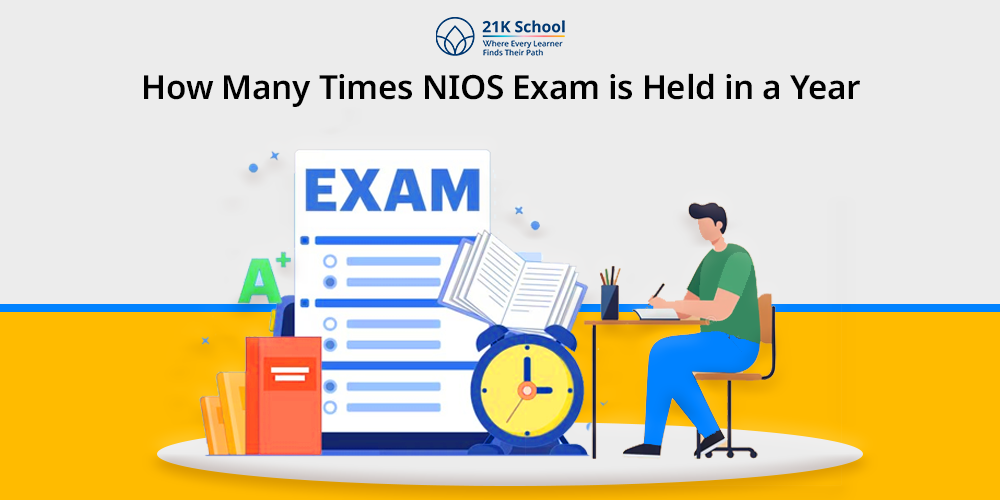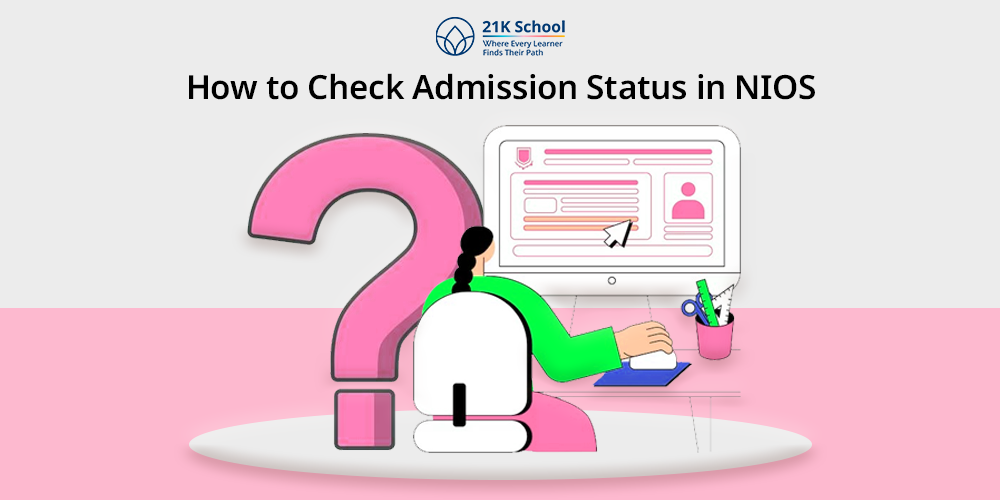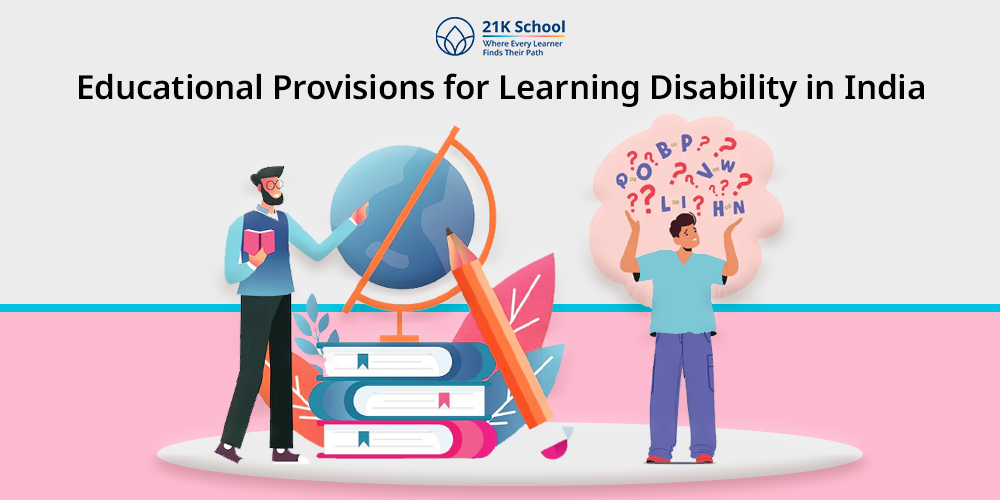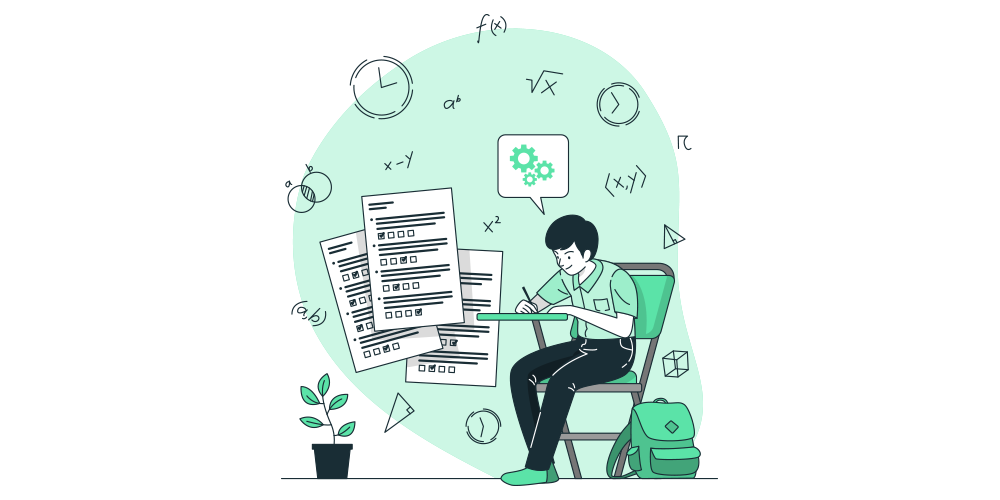
For a student navigating its journey through the GCSE curriculum it is very important for students to understand the importance of the GCSE mock exam and GCSE grade boundaries.
These are one of the most important terms that a student comes across in its academic journey. They are ordinarily conducted before A-level courses, vocational education and training and various occupations.
So what does this really mean and why is this so important?
These exams are preliminary assessments which replicate the conditions from the final examination providing students an opportunity to familiarise themselves with the format, time management and cater to all the exam related stress making sure that a student is academically prepared for the future.
GCSE or Edexcel International GCSE is best placed to provide qualifications that are recognised as being most closely aligned with the British educational system.
While these exams are a practice paper, they play a very important role in shaping a student’s final performance as it is directly related to the academic preparedness of a student where taking this exam seriously can address all the weaknesses that a student has and boost their confidence to develop an effective study schedule and habit.
Distance learning GCSE courses are very much formulated in a way to ensure that all types of learners can participate in education from different ages and backgrounds.
Read the mentioned blog to get a in-depth information on Online GCSE Courses a Professional Guide
Contents
What Are GCSE Mock Exams?
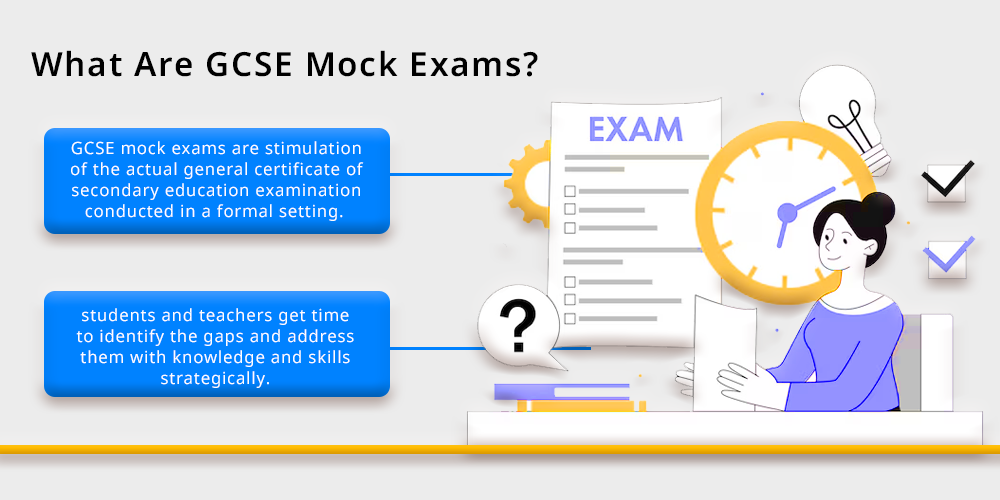
GCSE mock exams are stimulation of the actual general certificate of secondary education examination conducted in a formal setting with exactly the same rules as that of the real examination where the student follows the time limit question pattern and the setup for the exam.
These mock papers are scheduled usually a month before the actual examination where students and teachers get time to identify the gaps and address them with knowledge and skills strategically.
Mock exams are not just a test of academic knowledge; they prepare students for the pressures of sitting in an exam hall, adhering to strict timings, and managing stress — These help students in dealing with the nuances of exams with rehearsal.
Refer to this blog to know more about : Expert GCSE Revision Tips for Successful Studying
Importance of Mock Exams in Preparing for the Actual GCSEs
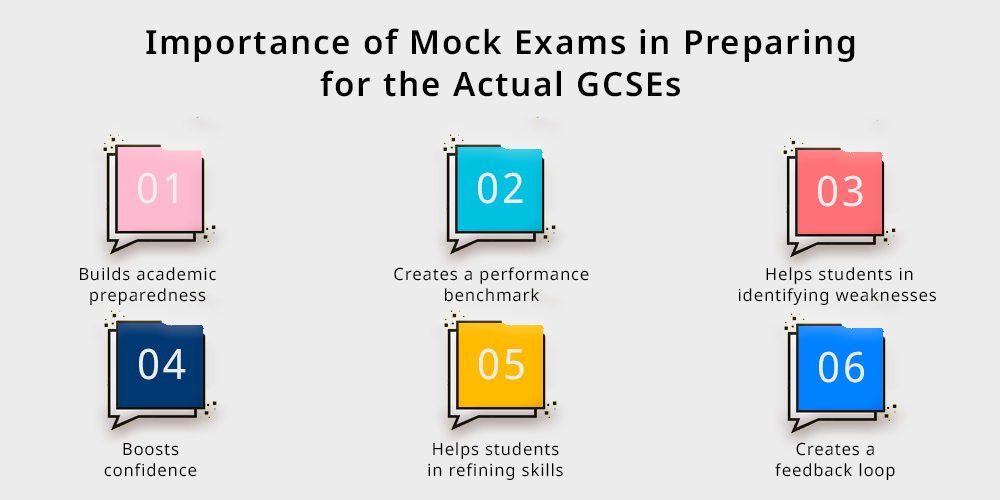
These GCSE exams are taken to serve multiple purposes for a student which makes it a very crucial aspect for the exam preparation and a valuable asset to the learning process for a student who is following a GCSE curriculum.
Some of the most important aspects that the mock exam serves are :
- It is a realistic practice that builds academic preparedness.
- It creates a performance benchmark for students to create realistic goals for the final exam.
- It helps students in identifying weaknesses and highlight the areas of improvement to work on strategically.
- It boosts confidence and students, giving them the essence of achievement and reducing exam day jitters for them.
- It helps students in refining skills and improving techniques like Time management question interruption and structured answers.
- It creates a feedback loop for students where they can utilise all the insights provided by the educators constructively.
6 Benefits of Taking GCSE Mock Exams
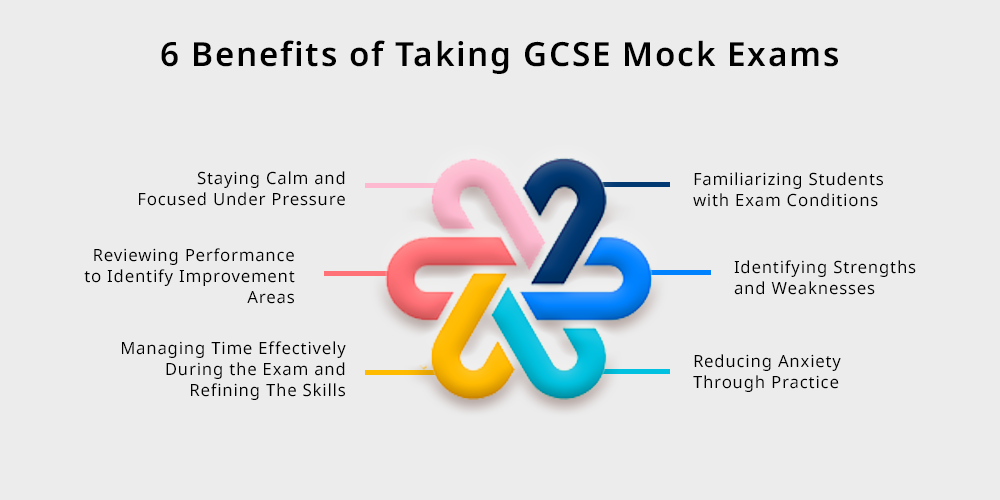
1. Familiarizing Students with Exam Conditions
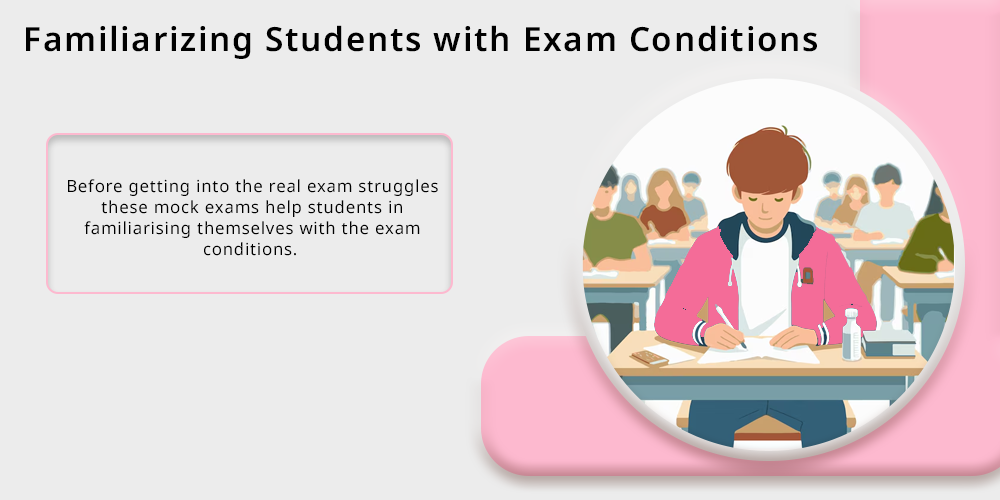
Before getting into the real exam struggles these mock exams help students in familiarising themselves with the exam conditions.
Stepping into the exam hall for the first time with such a difficult exam paper can be very intimidating for students.
These mock exams help students and get accustomed to the formal setting invigilators and the time constraint that an exam hall can possibly have.
This familiarity helps students in ensuring a better result for the exam day with less jitters and stress level.
2. Identifying Strengths and Weaknesses
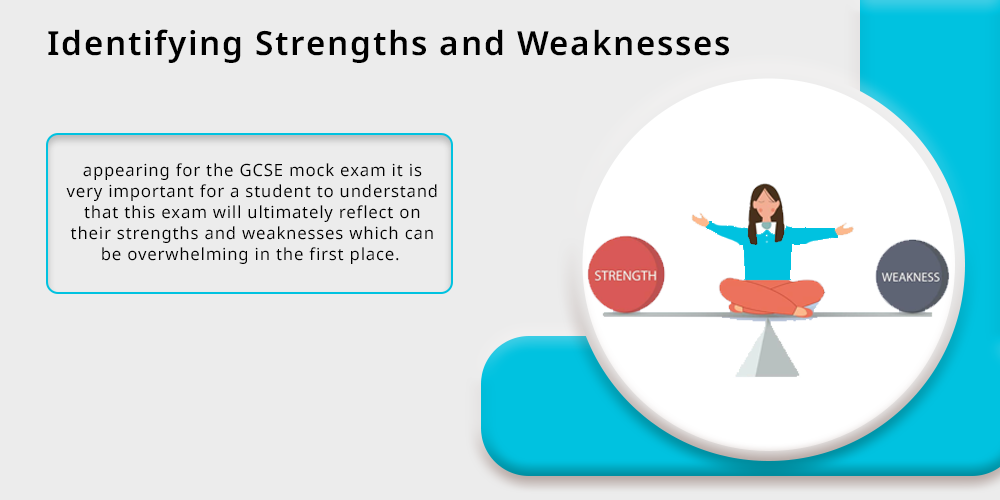
While appearing for the GCSE mock exam it is very important for a student to understand that this exam will ultimately reflect on their strengths and weaknesses which can be overwhelming in the first place.
The GCSE mock exam takes place one month before the actual examination, allowing students to take time and work on the areas of improvement highlighted during the mock exams.
This allows them to revise strategically and tailor their learning practices as per the plan where it focuses on the weak points and enhances overall performance for a student.
3. Reducing Anxiety Through Practice

By appearing in mock examinations students can reduce their anxiety through practice where anxiety is often a stem of fear which cannot be eliminated but can be controlled.
By repeated practice and a realistic exam environment students can get accustomed to the environment which reduces the uncertainty and builds confidence in them.
This similarity of the process helps students in calming their nerves and creative growth prospects for students making the actual exam day more manageable.
4. Managing Time Effectively During the Exam and Refining The Skills
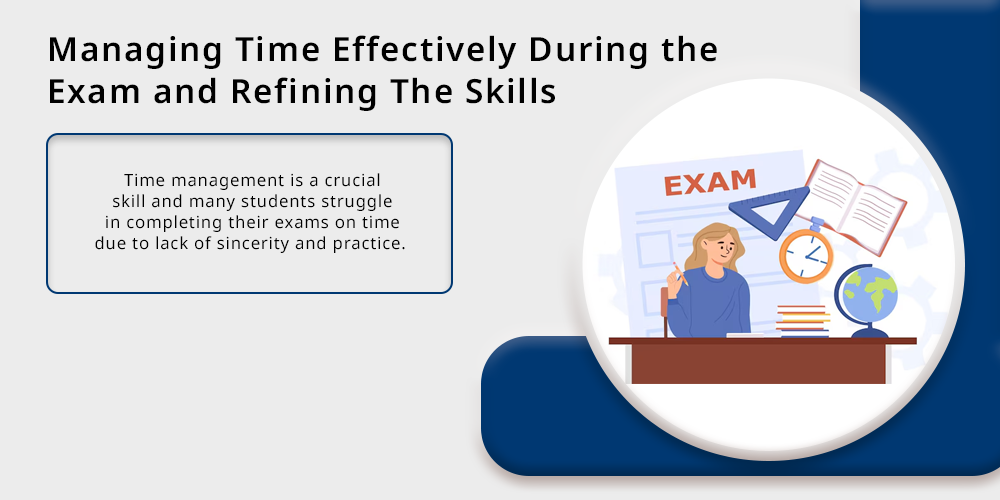
Time management is a crucial skill and many students struggle in completing their exams on time due to lack of sincerity and practice.
These mock exams teach students to allocate the time wisely and ensure that all answers are covered in the given time frame with utmost dedication and clarity.
The skill is invaluable for a student to achieve a high score and maintain a life where success certainly comes with wise utilisation of time and smart management skills.
5. Reviewing Performance to Identify Improvement Areas
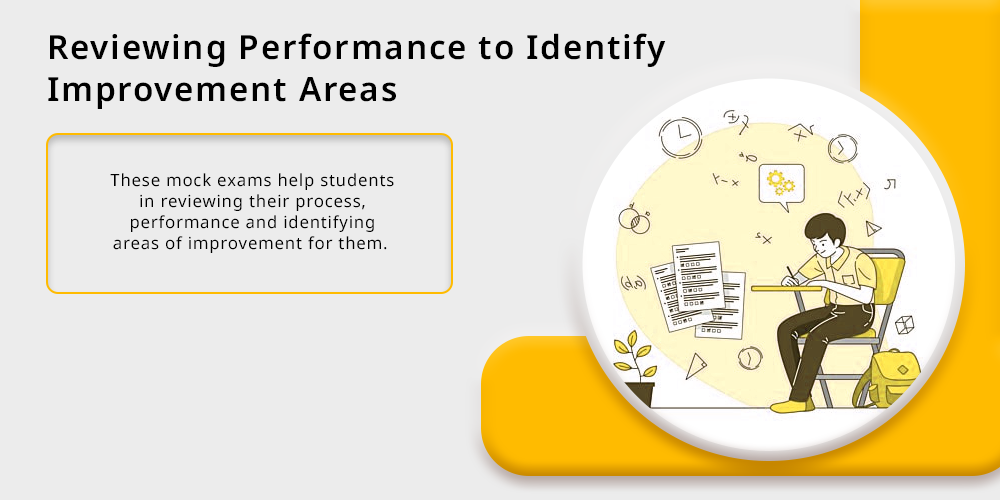
These mock exams help students in reviewing their process, performance and identifying areas of improvement for them.
These mock exams are a great asset to provide detailed and constructive feedback.
By appearing in these mock exams students can get a brief insight into the specific mistakes and the gaps in knowledge they have where they can create more specific strategies to create a targeted improvement plan for the final examination.
6. Staying Calm and Focused Under Pressure

These exams help students in staying calm and focused under pressure.
We are all well aware that exam pressure is not just a joke, it’s the reality of life that only hits when you enter the classroom with invigilators and the clock ticking for you.
By staying composed in such situations a student can maintain focus and manage their stress level which will ultimately help them in performing better under pressure.
These mock exams ensure that students’ preparation for the big day is not under any external uncertainty that he or she may encounter in the exam hall.
Common Mistakes to Avoid
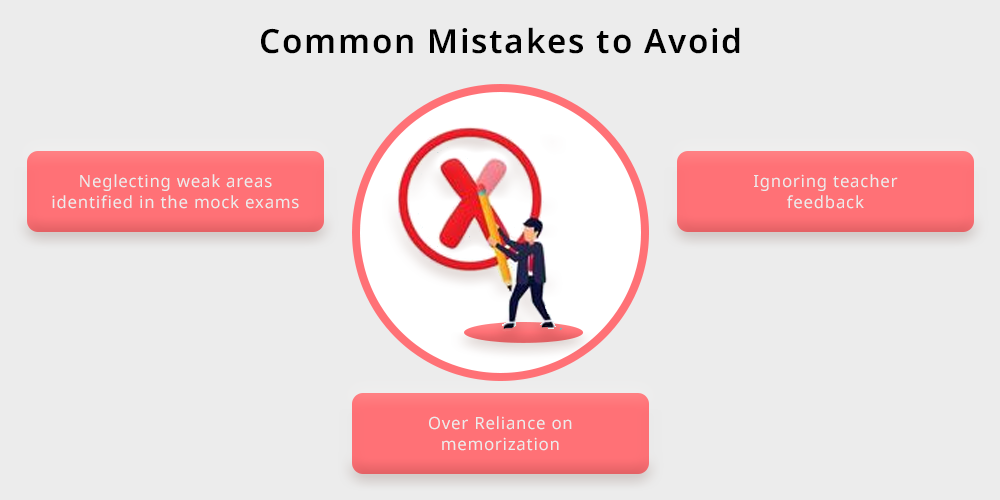
Common mistakes that students need to avoid while preparing for the GCSE final examination are a long list of things that students often do to avoid their weaknesses and be delusional about their result.
- Neglecting weak areas identified in the mock exams : Students often ignore the feedback provided by the educators and facilitators during the mock exams which leads to repetitive mistakes.
Students should always address their weaknesses head on and be proactive with their academic journey.
- Over Reliance on memorization : While preparing for the GCSE final examination students can avoid the conventional method of rote learning, although these methods can work for some subjects but to understand the long term application of courses would require knowledge retention and dedicated concentration.
- Ignoring teacher feedback : For the GCSE final examination students are suggested not to ignore any of the valuable insights provided by the facilitators on their performance as this advice can refine their approach to learning and can promote constructive learning.
Conclusion
GCSE mark exams are more than practice tests for students.
It is a step to watch their foundation for success in the academic history of their life.
By approaching these mock exams with seriousness and dedication students can develop all the necessary skills required for them to become a well rounded individual.
The developed skills during this process are confidence, resilience and preparation for final exams.
Which proper preparation and time management students can excel in their final exam and can ace their academic journey.
It is very important for students to remember that preparation is the only way out for their success and every effort invested in this process will pay dividends at the end of their final examination.

